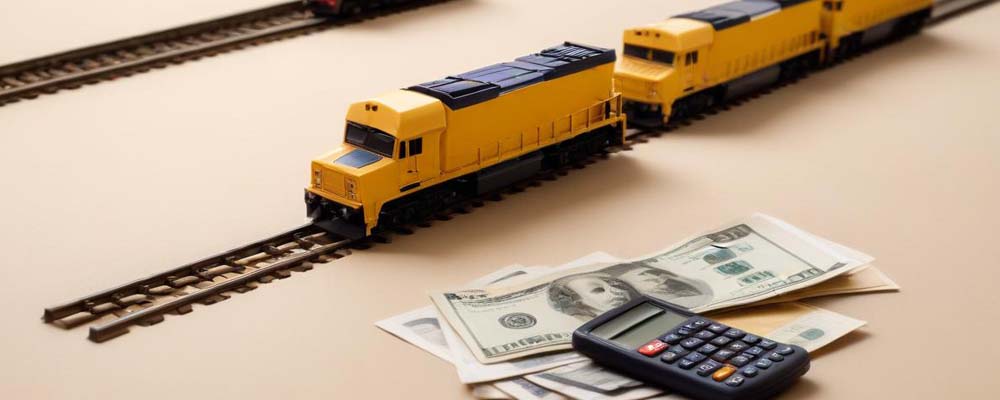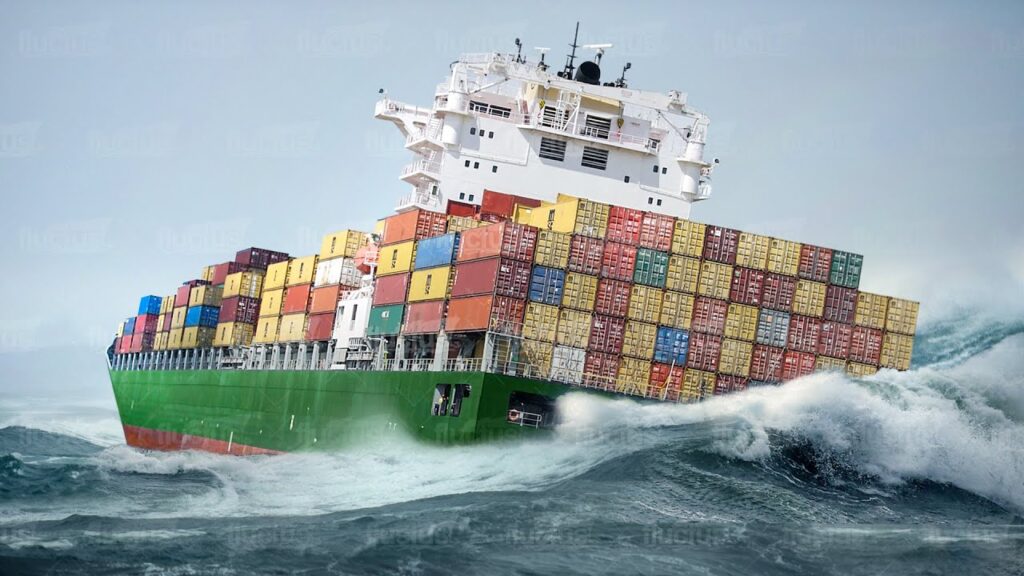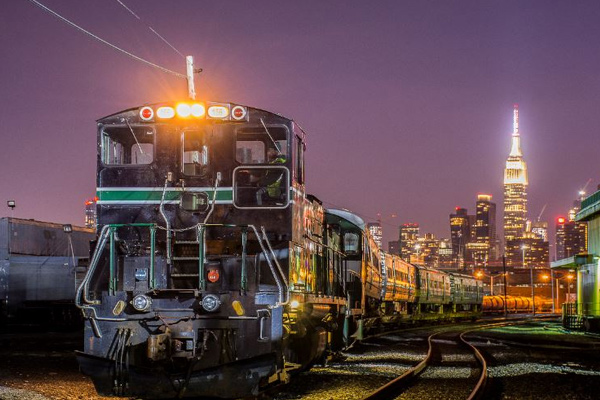- By Della tj
- September 28, 2025
- Rail Freight, Shipping
Every year, more businesses explore the china freight train to UK as a faster and greener alternative to traditional sea freight. Since supply chains demand speed and reliability, rail freight between China and the UK has become a vital link in the New Silk Road. Moreover, it offers a balance between cost efficiency and transit time, giving importers greater flexibility than air or ocean shipping.
What Is the China Freight Train to UK?
The China freight train to UK is a rail freight service operating between major Chinese cities and logistics hubs in the United Kingdom. Goods are consolidated in inland Chinese terminals such as Yiwu, Chongqing, or Xi’an before traveling through Central Asia and Europe to arrive in London, Felixstowe, or other UK destinations.
Key benefits include:
- Faster than sea freight, cheaper than air freight
- Reliable schedules with fixed departure times
- Reduced carbon emissions compared with other modes
- Strong infrastructure under the Belt and Road Initiative
How Does Rail Freight Compare With Other Modes?
| Mode | Avg. Cost | Transit Time | Pros | Cons |
|---|---|---|---|---|
| Sea Freight | $4,500 per 40HQ | 28–35 days | Cheapest, bulk cargo | Slow, port congestion |
| Air Freight | $7–$10 per KG | 5–9 days | Fastest, secure | Expensive |
| Rail Freight | $6,000 per 40HQ | 15–20 days | Balanced cost & speed | Limited capacity/routes |
| Courier | $11–$13 per KG | 3–7 days | Door-to-door | Costly for large volumes |
Why Choose the China Freight Train to UK?
Although sea freight remains popular, rail offers distinct advantages:
- Transit time: 15–20 days vs. 30+ days by sea
- Cost savings: Up to 50% cheaper than air freight
- Sustainability: Rail emits far less CO₂ than planes or vessels
- Reliability: Trains follow fixed schedules with fewer weather disruptions
What Documents Are Required for Rail Shipments?
| Document | Purpose | Issued By |
|---|---|---|
| Commercial Invoice | Declares value of goods | Exporter |
| Packing List | Cargo details | Exporter |
| Rail Waybill | Contract of carriage | Railway operator/forwarder |
| Certificate of Origin | Confirms source | Chamber of Commerce |
| Import License | For restricted products | Importer |
| Insurance Certificate | Protects against risks | Shipper/Forwarder |
How Long Does the China Freight Train Take to Reach the UK?
| Origin City | Destination | Transit Time |
|---|---|---|
| Yiwu | London | 16–18 days |
| Chongqing | Felixstowe | 17–19 days |
| Xi’an | Birmingham | 15–17 days |
| Zhengzhou | London | 18–20 days |
Although times vary slightly, they are significantly faster than sea freight.
Real-World Case Studies of Rail Freight
Case 1: Yiwu to London – Consumer Goods
- Mode: Rail freight FCL
- Cargo: 22 tons household items
- Cost: USD 6,200 per 40HQ
- Transit: 17 days
Insight: Importer avoided port congestion delays seen in ocean freight.
Case 2: Chongqing to Felixstowe – Electronics
- Mode: Rail freight LCL
- Cargo: 10 CBM mixed electronics
- Cost: USD 1,400
- Transit: 18 days
Insight: Consolidation allowed SME to save on costs compared with air.
What Are the Pros and Cons of China–UK Rail Freight?
| Pros | Cons |
|---|---|
| Faster than sea freight | More expensive than sea freight |
| Lower cost than air freight | Limited route coverage |
| Fixed schedules | Capacity constraints |
| Reduced carbon footprint | Customs clearance may cause delays |

How Do Reviews Rate the Service?
Most importers highlight:
- Predictable schedules compared with sea freight
- Strong communication from freight forwarders
- Challenges during peak demand when space is tight
- Positive experiences with customs-prepared shipments
Should Small Businesses Consider the Train Option?
Absolutely. Rail freight is particularly attractive for small and medium enterprises that:
- Ship volumes too large for air freight but too small for full sea containers
- Need quicker replenishment than sea allows
- Value carbon-reduction strategies to align with sustainability goals
How Can Importers Optimize China–UK Rail Shipments?
Importers can improve performance by:
- Booking space in advance during peak seasons
- Using LCL consolidation when cargo is under 15 CBM
- Double-checking HS codes for customs compliance
- Combining rail with last-mile trucking for efficient delivery
Conclusion
In conclusion, the china freight train to UK bridges the gap between sea and air transport, offering speed, reliability, and reasonable costs. With transit times averaging 15–20 days, it helps importers optimize supply chains without overspending on air freight. By learning from real cases, preparing documents correctly, and working with professional forwarders, businesses can maximize efficiency and reduce risks. For importers seeking balanced logistics, rail freight is a powerful solution that supports long-term trade growth.
- Consult TJ China Freight Forwarding for the lowest quote. They will provide you with reliable, cost-effective service.
FAQs
Q1.What are the main advantages of the china freight train to UK service?
The main benefits include faster transit than sea freight, reduced carbon emissions, and lower costs compared with air shipping.
Q2.How reliable is customs clearance for rail freight shipments to the UK?
Customs clearance is generally efficient when documents are accurate, and experienced forwarders handle HS codes, invoices, and packing lists.
Q3.Can perishable products be transported by china freight train to UK?
Yes, refrigerated containers are available, enabling perishable cargo like food, flowers, and pharmaceuticals to reach the UK in good condition.
Q4.Are there tracking systems available for rail freight shipments from China to UK?
Modern rail services provide digital tracking platforms, offering real-time updates on container location and estimated arrival schedules.
Q5.How do freight forwarders support small businesses using china freight train to UK?
Forwarders offer LCL consolidation, simplified paperwork, and flexible delivery options, making the service suitable for small and medium enterprises.




